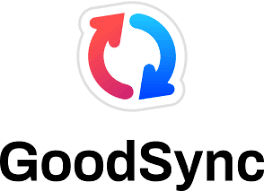Node.js 20.0.0 2023 Full Version
Node.js is a popular open-source runtime environment used for server-side programming. On October 19, 2021, the Node.js team released version 20.0.0, with several new features and improvements.

One of the most significant additions to Node.js 20.0.0 is the implementation of ECMAScript modules (ESM). ESM allows for more efficient code management by providing a standardized approach to importing and exporting code between modules. This feature enables developers to write more modular and scalable code, leading to better performance and maintainability.
Another notable feature in it 20.0.0 is the inclusion of a built-in Web Crypto API. This API allows developers to perform cryptographic operations, such as hashing and signing, within the Node.js runtime environment. With this feature, Node.js applications can securely handle sensitive data without relying on external libraries or services.
Additionally,20.0.0 introduces support for HTTP/3, a new version of the HTTP protocol that aims to improve the speed and reliability of web connections. This feature can help Node.js applications achieve faster and more stable web communication, leading to better user experiences.
Overall, 20.0.0 is a significant release that brings many valuable features to the Node.js ecosystem. These features enhance Node.js’s capabilities and make it an even more powerful tool for building modern web applications.
Top Key Feature
- V8 engine update: 16.10.0 includes an update to the V8 JavaScript engine to version 9.4. This brings performance improvements and new language features to
- Stable Timers APIs: The Timers APIs, used for scheduling functions to be called at specific times or intervals, have been marked as stable in this release. This means they are now fully supported and can be used without fear of breaking changes in future releases.
- Experimental Web Crypto APIs: 16.10.0 includes experimental support for the Web Crypto API, which provides cryptographic functionality such as generating random numbers, encrypting and decrypting data, and hashing. This API is commonly used in web applications and can now be used in
- Prebuilt binaries for Apple Silicon: Node.js 16.10.0 includes prebuilt binaries for Apple Silicon, allowing Node.js to run natively on Apple’s M1 chip.
- Experimental AsyncLocalStorage API: The AsyncLocalStorage API provides a way to store data accessible across asynchronous boundaries, and has been marked as practical in 16.10.0. This API can be helpful in situations where data needs to be shared between asynchronous functions without the use of global variables or passing parameters

How To Install
- To install , go to the official website and locate the version you want to install.
- Download the appropriate installer for your operating system (Windows, macOS, or Linux).
- Install the software by running the installer and following the prompts.
- After installation, you can verify that Node.js is installed correctly by opening a command prompt or terminal and typing “node -v” (without quotes). This should display the version number of the installed Node.js.
Keep in mind that installing a specific version of Node.js might not be necessary for most use cases. Using the latest stable or LTS version is generally recommended unless there is a particular reason to use an older version.





